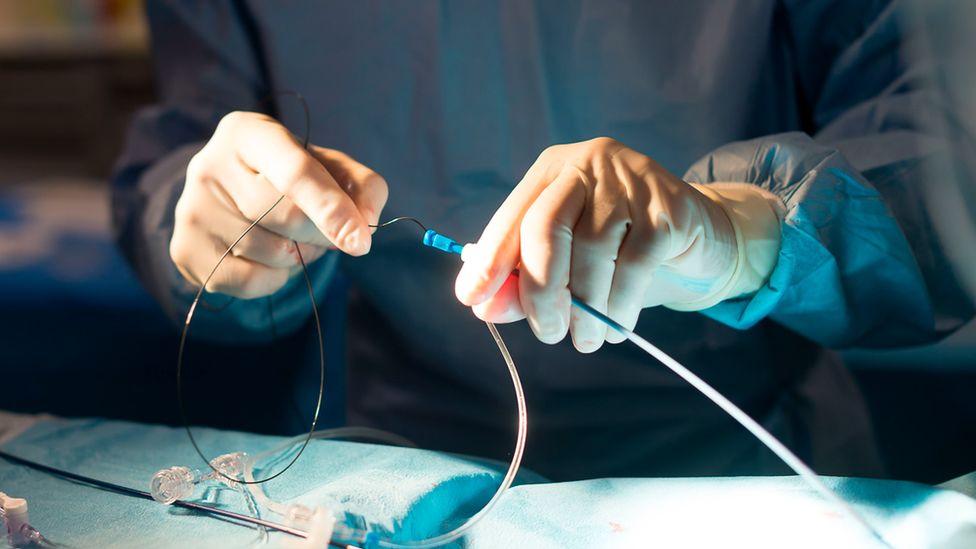'Lifesaving procedure means I'll see grandchild'
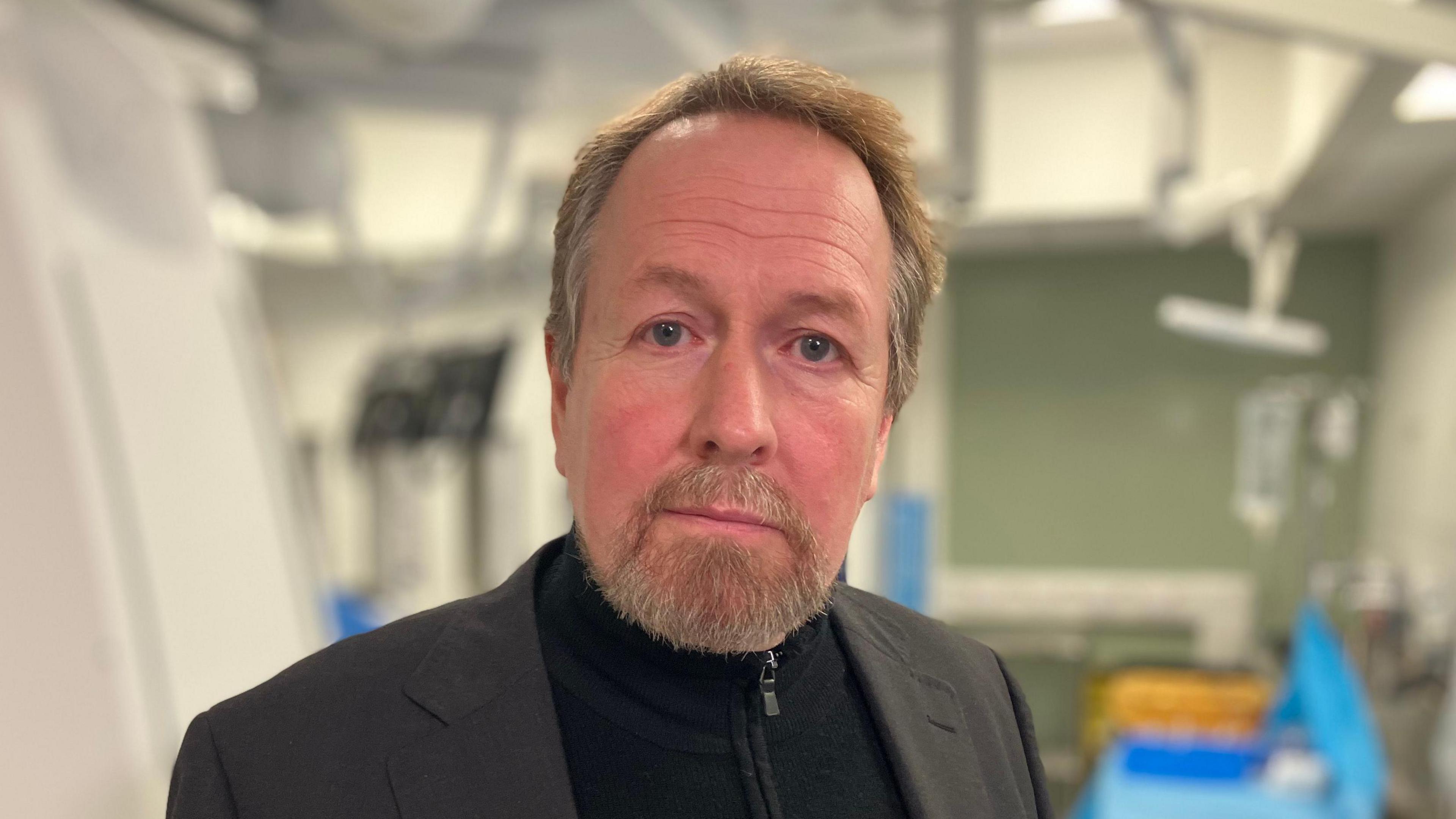
Kevin Freestone was rushed to the Queen's Medical Centre after a stroke on 17 October
- Published
A man who suffered a stroke says a "lifesaving" procedure means he will be alive for the birth of his grandchild.
Kevin Freestone, a 57-year-old carpenter from West Hallam in Derbyshire, woke up suffering from a stroke in October.
He was taken to Queen's Medical Centre (QMC) for treatment and is now receiving cognitive treatment from his support team.
Kevin helped re-open the the hospital's interventional radiology (IR) theatres on Wednesday and said: "I wanted to be brought back because I didn't want to miss my grandchild - they're my future so it means absolutely everything to me."
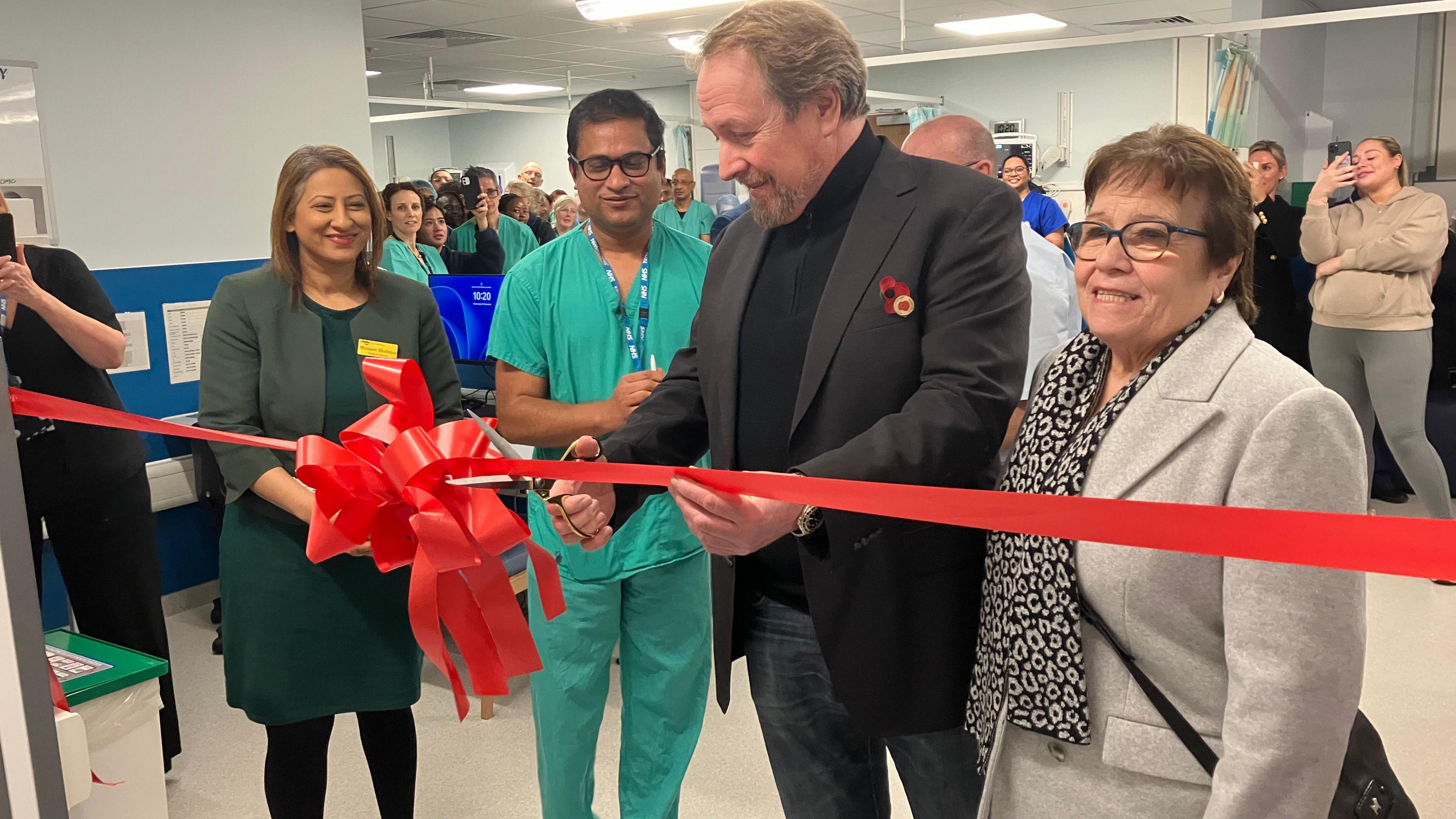
Kevin cut the ribbon at the official reopening of the interventional radiology theatres
"To shake somebody's hand that's saved your life or your livelihood is very emotional," added Kevin, who now hopes to return to work.
"Having the use of these hands is hugely important in my work. You have to be precise.
"It means that I'm not a burden on my family and that I can still help people with what they want in their homes."
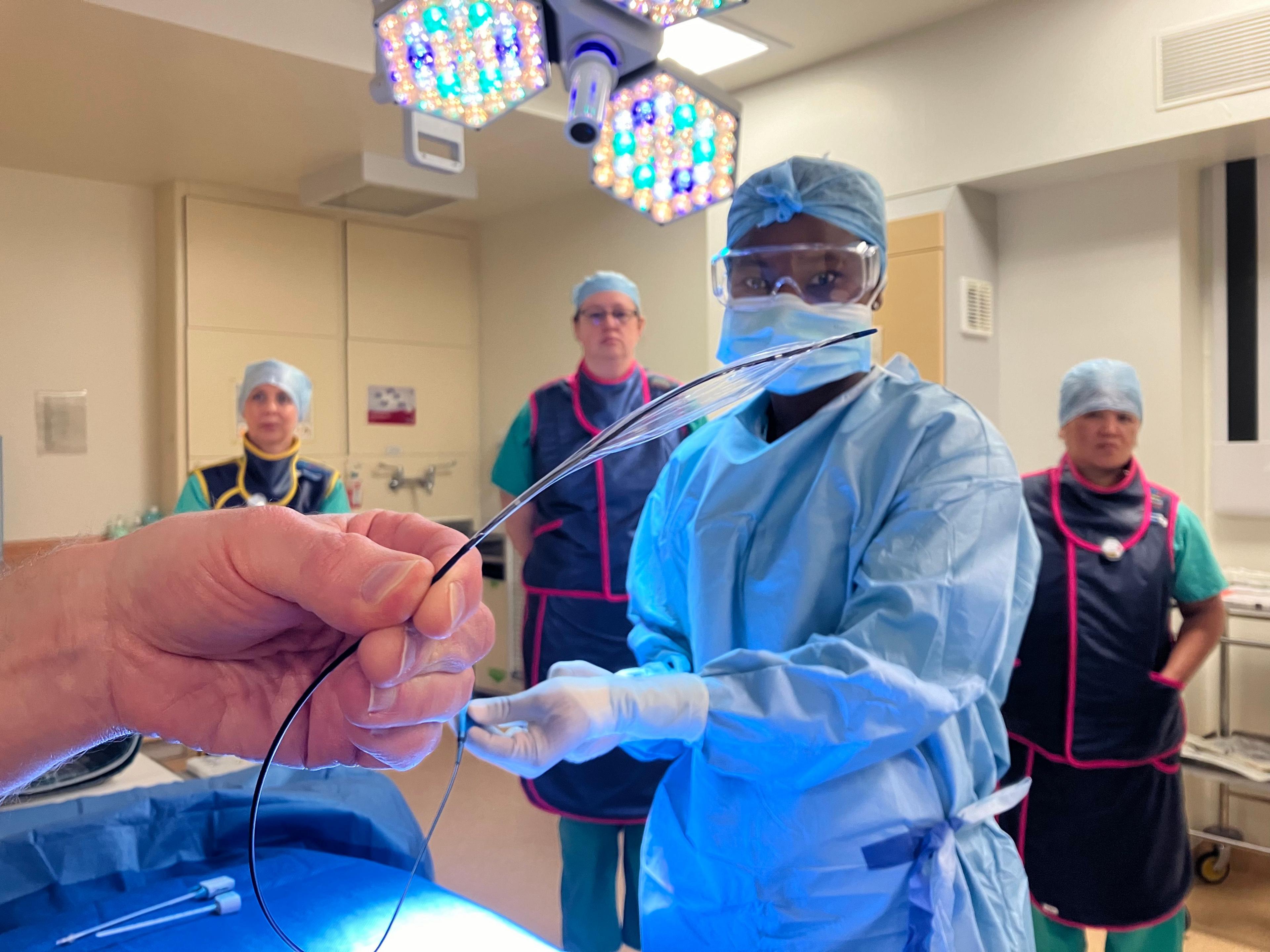
IR uses imaging technology and thin tubes to diagnose and treat conditions like strokes
The new theatres will help Nottingham University Hospitals (NUH) NHS Trust expand its mechanical thrombectomy service.
The minimally-invasive procedure, which does not require a surgical incision, removes blood clots from arteries within the brain for patients who have had a stroke.
Doctors use thin tubes which are monitored by an X-ray scanner.
About 200 patients a year from around the East Midlands are treated by the service in Nottingham.
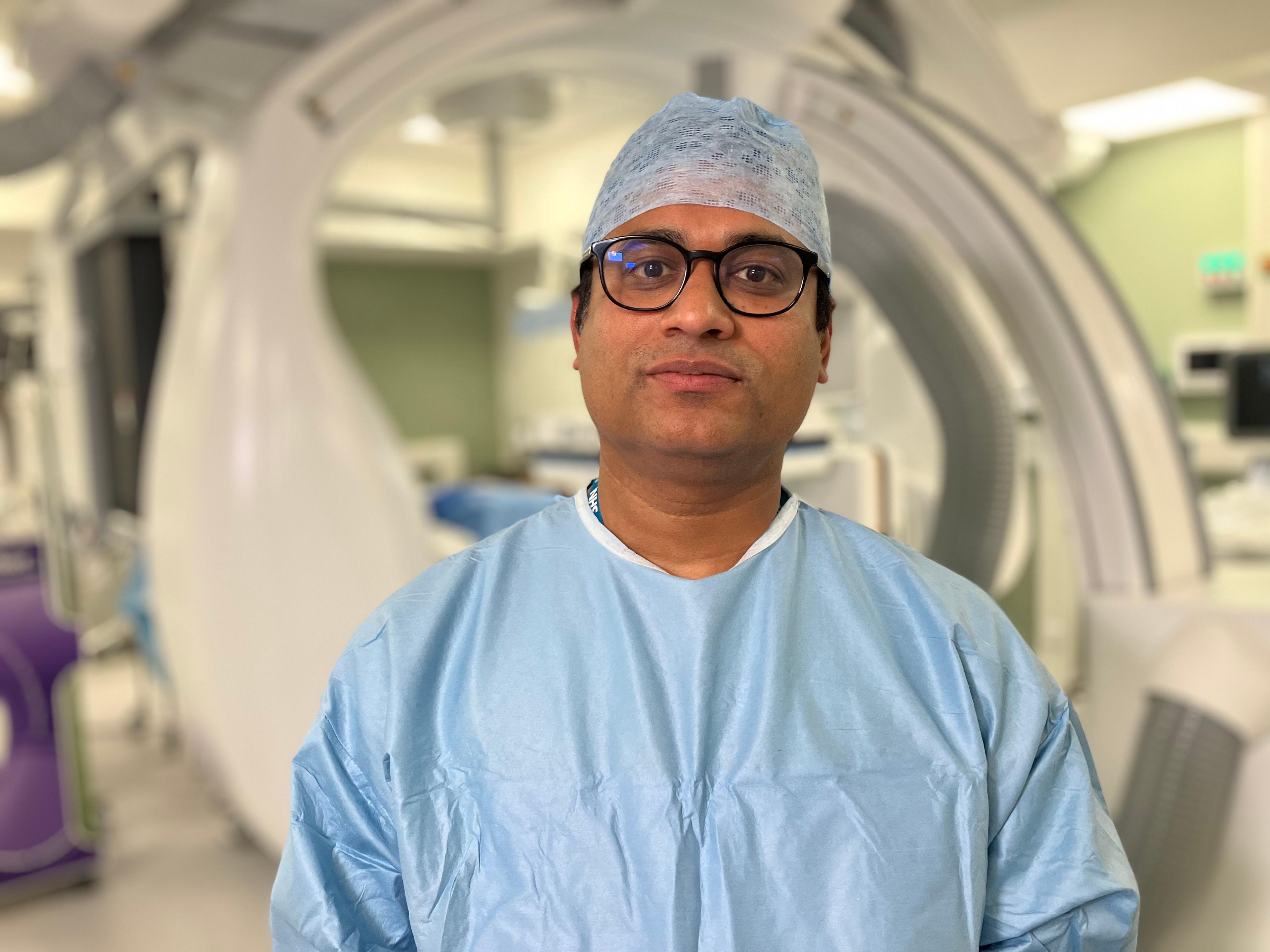
Dr Sujit Nair says mechanical thrombectomy is "one of the most rewarding procedures"
"It's one of the most rewarding procedures that we do here," said Sujit Nair, an interventional neuroradiologist at the hospital.
"The patients who come in for this procedure are disabled," he added. "They have serious stroke symptoms.
"When we do this procedure successfully, it's quite rewarding to see that they have made near-complete recovery."
NUH now hopes to offer a 24-hour service from early 2025.
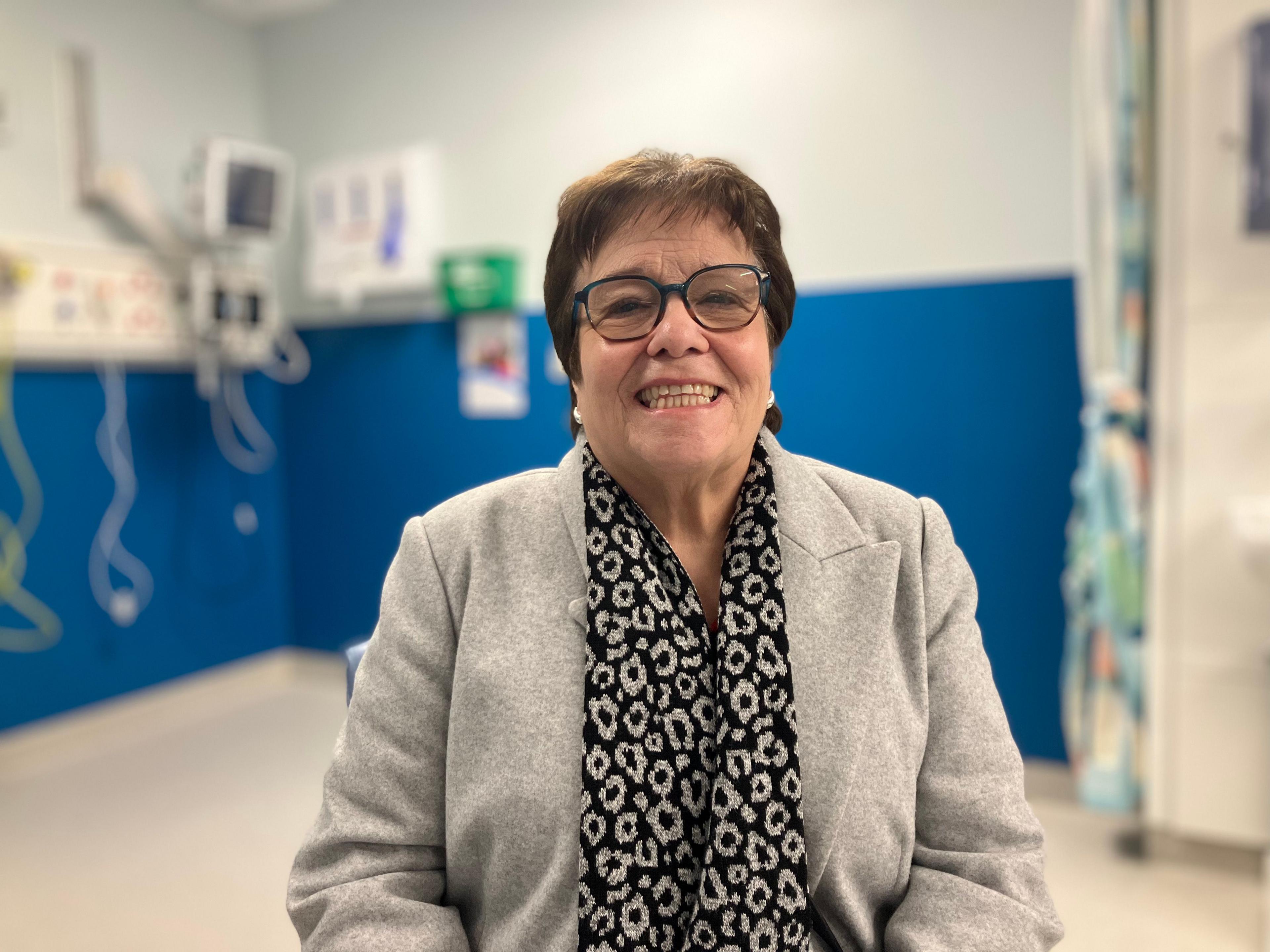
Angela Bradbury says her experience in the IR theatres was "absolutely brilliant"
Angela Bradbury suffered a stroke in August, two days before she was due to start a Mediterranean cruise.
The 69-year-old, from Overseal in Derbyshire, initially went to hospital in Derby when her "voice went all gobbledegook-y".
Her condition improved at first but, when she woke up the next day, she had lost the use of an arm and a leg.
"I knew everything that was happening but I couldn't speak it," said Angela, who was taken in an ambulance to the QMC.
"It's lifesaving," she said. "Thank you from the bottom of my heart, you have saved my life."
Angela says she is recovering well - and even got her money back for the cruise.
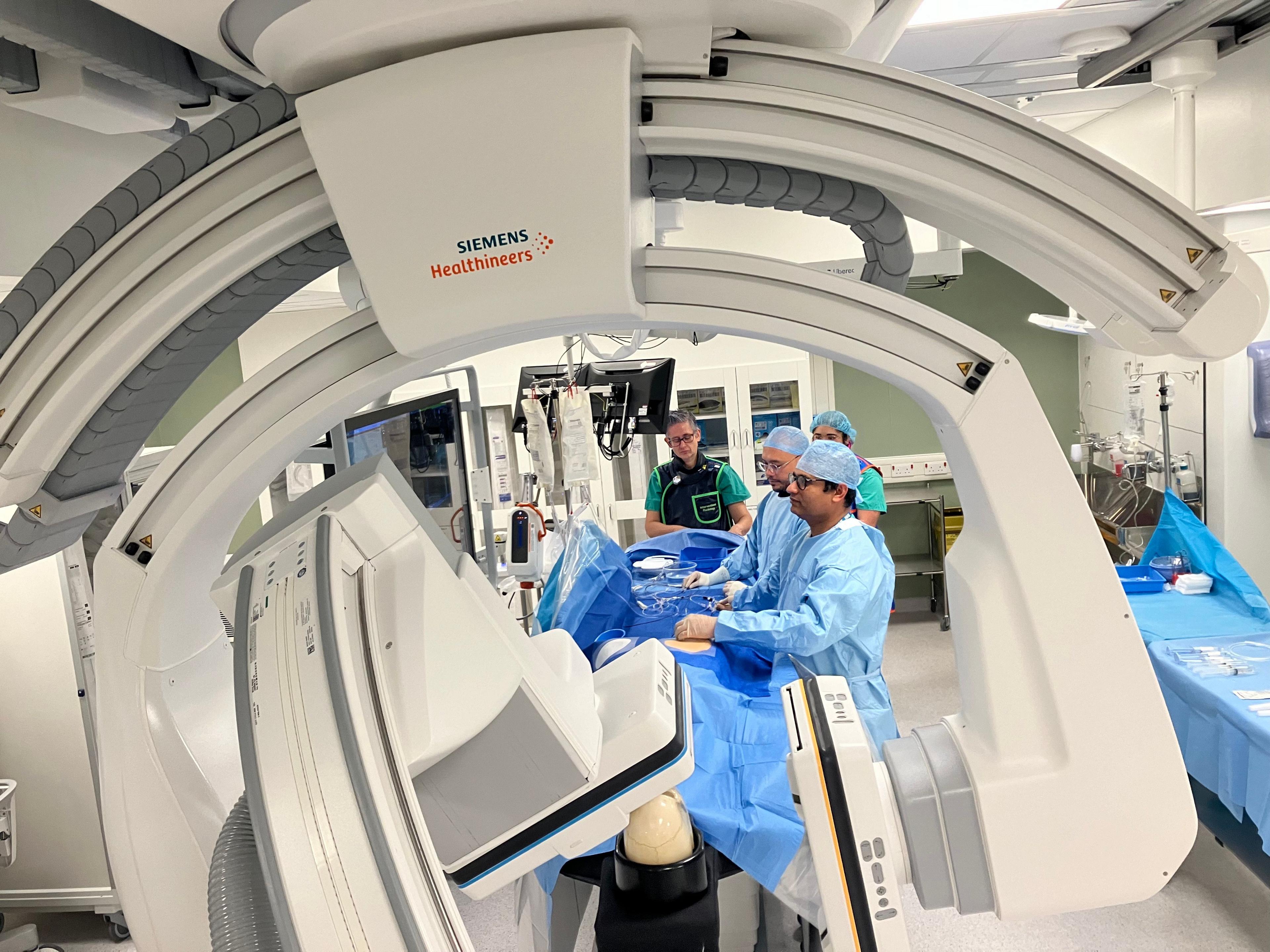
The transformation of the theatres includes new equipment and upgrades
Get in touch
Tell us which stories we should cover in Nottingham
Follow BBC Nottingham on Facebook, external, on X, external, or on Instagram, external. Send your story ideas to eastmidsnews@bbc.co.uk, external or via WhatsApp, external on 0808 100 2210.
Related topics
- Published26 September 2024
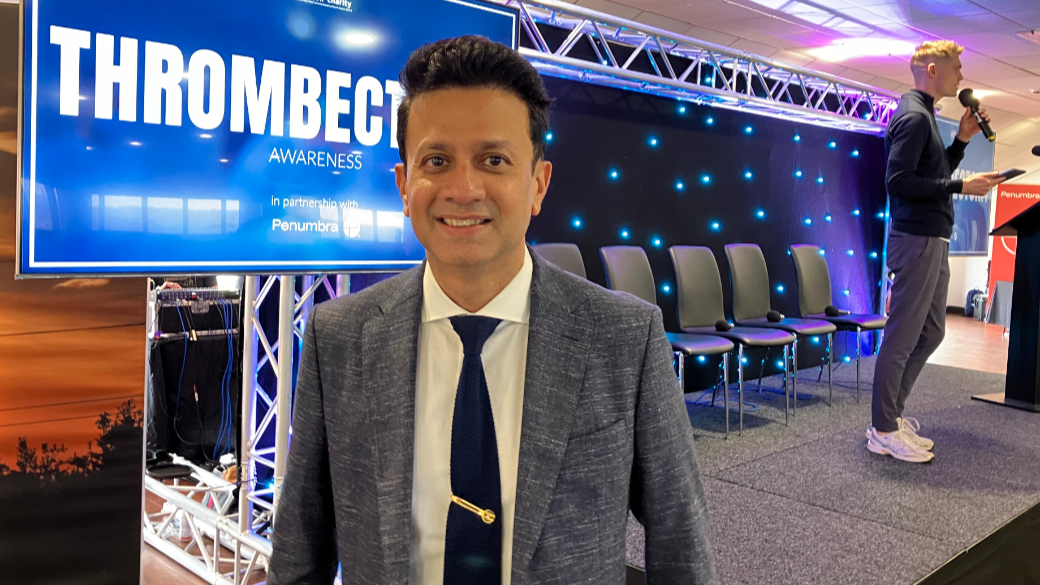
- Published15 May 2024
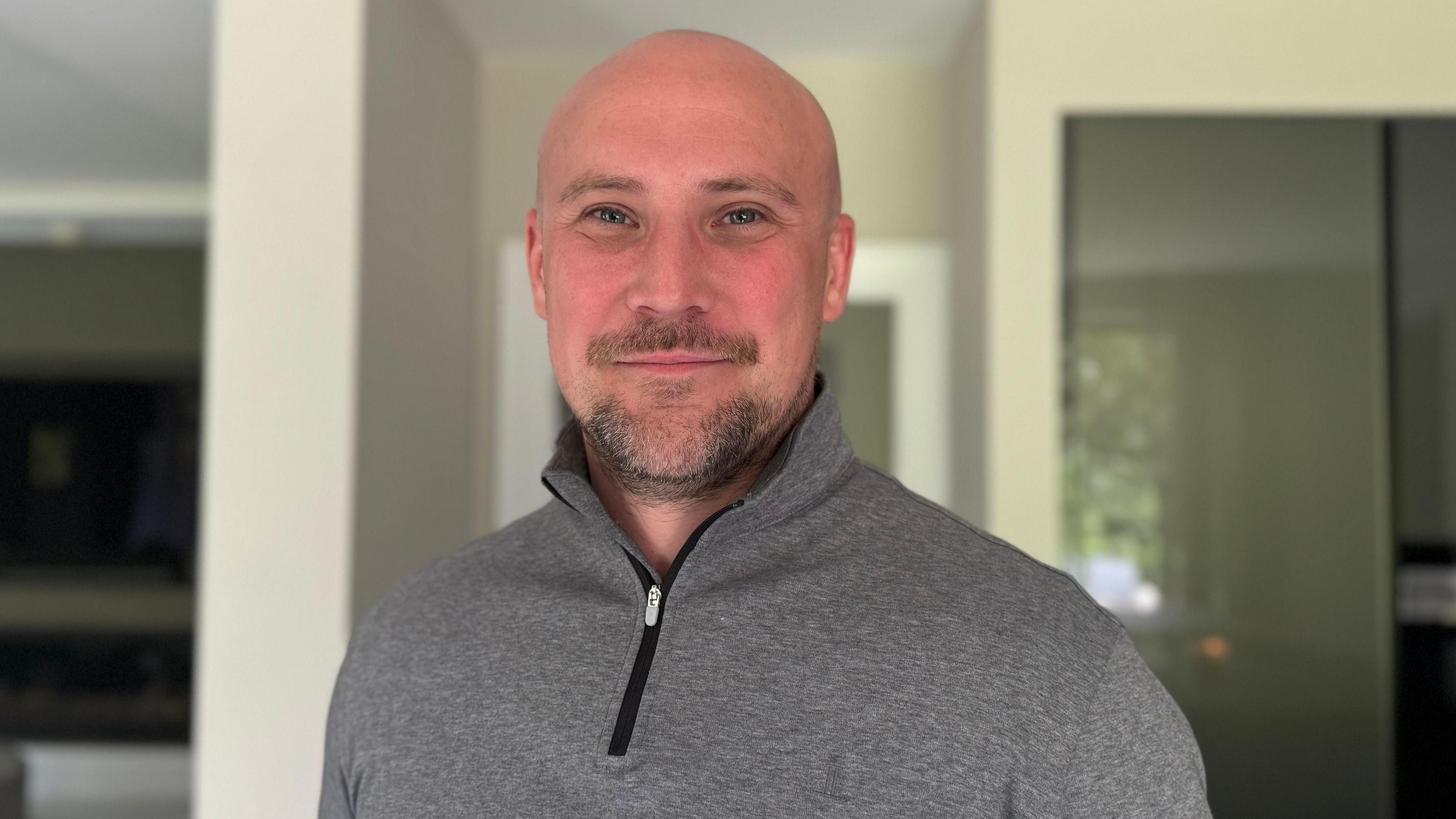
- Published10 August 2023
